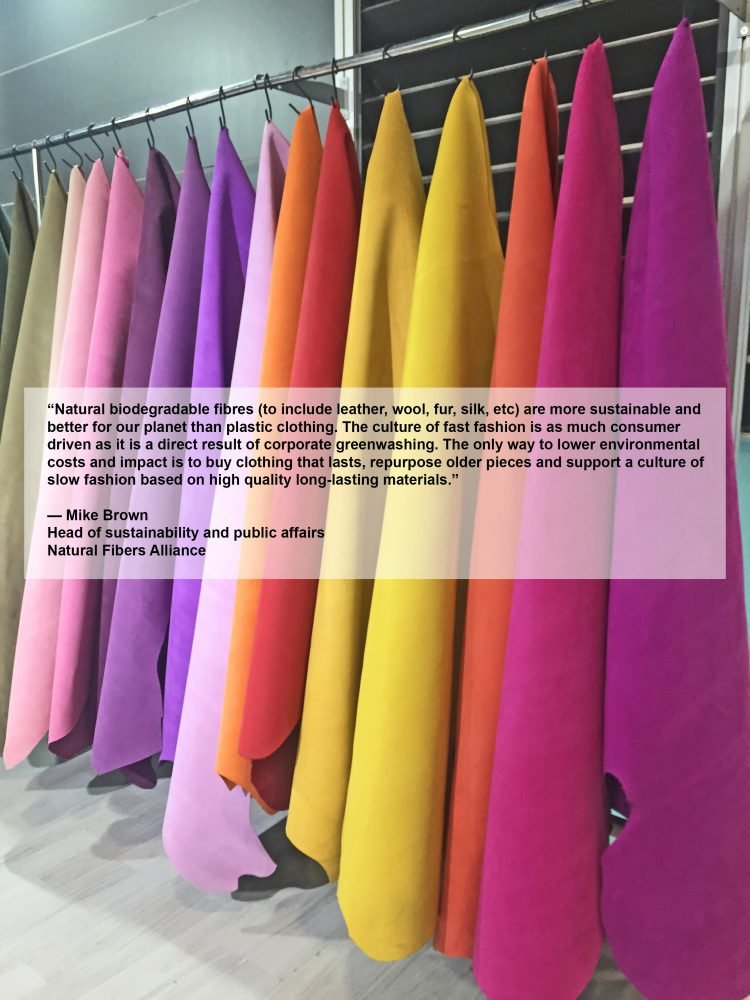The beleaguered Higg MSI by the Sustainable Apparel Coalition has come under fire yet again as the Natural Fibers Alliance calls for its immediate suspension.
- The NFA feels that legislation and effective regulation are the only clear path forward.
- It is estimated that the use of synthetic fibres will increase from 69% to 73% market share within the next 10 years.
- The culture of fast fashion is as much consumer driven as it is a direct result of corporate greenwashing.

The Natural Fibers Alliance (NFA) has called for an immediate suspension of the use of the Higg Index in the backdrop of the recent New York Times article ‘How Fashion Giants Recast Plastic as Good for the Planet’.
Since the Higg Index was developed in 2012, many in the natural fibres community (leather, wool, fur, silk, etc) and fashion activists have voiced concerns over the index’s questionable support of harmful synthetic materials made from fossil fuels that run counter to long term environmental sustainability goals, the NFA said in a statement.
“Natural biodegradable fibres (to include leather, wool, fur, silk, etc) are more sustainable and better for our planet than plastic clothing. The culture of fast fashion is as much consumer driven as it is a direct result of corporate greenwashing. The only way to lower environmental costs and impact is to buy clothing that lasts, repurpose older pieces and support a culture of slow fashion based on high quality long-lasting materials.”
— Mike Brown
Head of sustainability and public affairs
Natural Fibers Alliance
THE BACKDROP: Two recent news reports, in the Intercept and New York Times, have highlighted how fast fashion companies were allegedly using the Sustainable Apparel Coalition (SCA) and its Higg MSI into promoting polyester and other synthetic fibres as sustainable fashion. The reports have caused an uproar in the textiles-apparel-fashion industry, with both the SAC and Higg Inc issuing statements denying the allegations. Close on its heels came the ruling of the Norwegian Consumer Authority (NCA) which ordered outdoor brand Norrøna to stop invoking the Higg MSI to market its products as environment-friendly. Swedish giant H&M has been asked to do the same too, while the SAC has been directed to ask its members to desist from doing likewise.
THE GROUP: The Natural Fibers Alliance is a coalition of producers and associations in both the US and Canada that support the use of natural sustainable materials in clothing, accessories, and other goods.
THE COUNTER-ARGUMENT: The NFA feels that legislation and effective regulation are the only clear path forward. Sustainable natural fibres derived products should be the norm, not the exception and the only way to achieve that is to level the playing field, placing responsibility on companies through their compliance with regulation, allowing customers to make informed choices rather than having that decision manipulated by data or overreaching animal rights activists.
THE ENVIRONMENTAL COSTS: The NFA cited the recent report of Changing Markets Foundation (CMF), Fossil Fashion: The Hidden Reliance on Fossil Fuels, to underline that the use of synthetic materials derived from crude oil and gas has doubled in clothing, creating both a reliance on the material and a boom in the cheap, fast fashion industry. This boom has had a direct environmental impact that will lead to an eventual ecological disaster. The CMF estimates the use of synthetic fibers will increase from 69% to 73% market share within the next 10 years.










